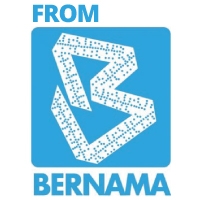KUALA LUMPUR, March 23 — Militant group, Daesh is against the true teachings of Islam, and practises religious extremism, says Libya’s Ambassador to the United Arab Emirates, Dr Aref Ali Nayed.
He said Daesh’s main objective was not to fight for the sake of Muslims but to only seek power through violence, an act similar to the Nazi Germans under the control of Adolf Hitler during the Second World War.
He was speaking to Bernama when met on the sidelines of the 2nd Islamic and Strategic Studies Insitute (Malaysia), Kalam Research and Media, and Institute of Islamic Understanding Malaysia (IKIM) Workshop on Kalam Epistemology at IKIM here.
Also present at the two-day workshop, beginning today, was IKIM director-general Prof Datin Dr Azizan Baharuddin.
Aref Ali said Daesh had not only made Muslims became refugees and forced them to seek shelter in European countries as result of ongoing wars, but also destroyed various ancient cultural heritage sites.
“The civilians are the real victims of this act of mass destruction, with refugees risking lives at sea and many children separated from their parents during their journey to the European countries.
“I am afraid that children who went missing could end up in the hands of criminals or terrorist groups. The United Nations and other world bodies should give serious attention and help resolve issues involving Muslims refugees,” he added.
Aref Ali is also founder and director of Kalam Research and Media, a collegial think-tank and training centre dedicated to research, education, content development and capacity building in Islamic theology, philosophy, and wisdom.
Meanwhile, Azizan, in her opening speech said Kalam was essential in helping Muslims to understand difficult subjects like science, technology, engineering and mathematics (STEM).
“Critical thinking and asking questions make up the core foundation of Kalam, these values are important, especially in improving our student’s performance in STEM subjects,” she said.
Muslims need to promote the continued interactions between those trained in Kalam and those who specialised in STEM as this relationship would benefit both sides in exchanging information, she added.
She said workshop participants would gain benefits via the discussion sessions, with all the various themes and subjects to be scrutinised and deliberated by guest scholars and paper presenters. — Bernama



















